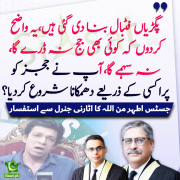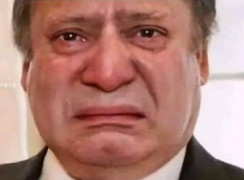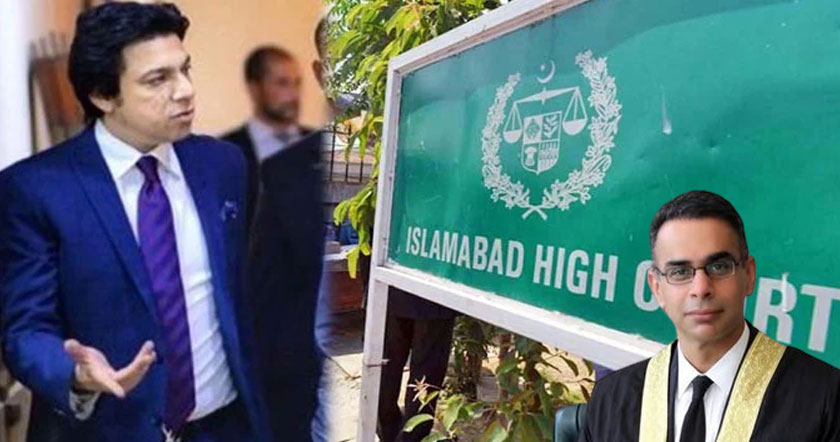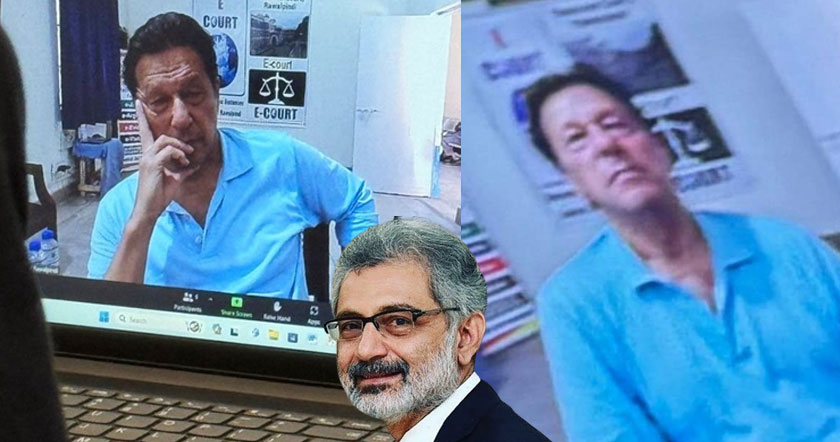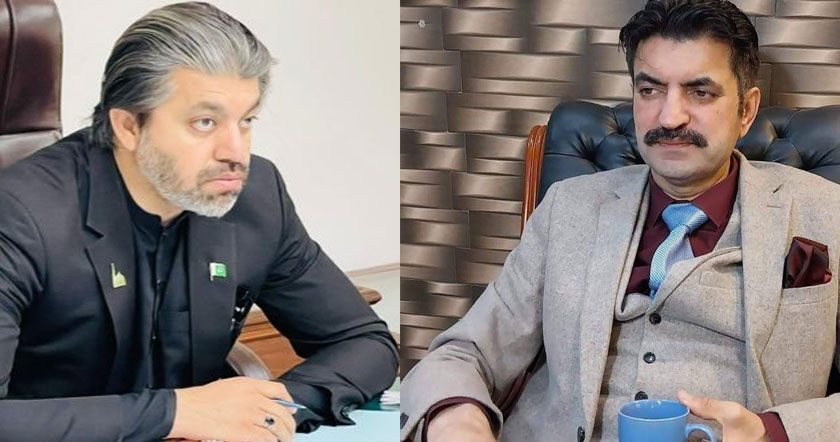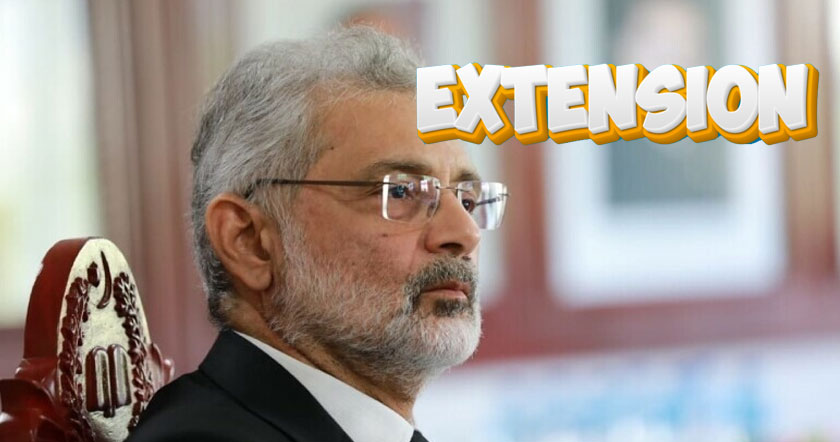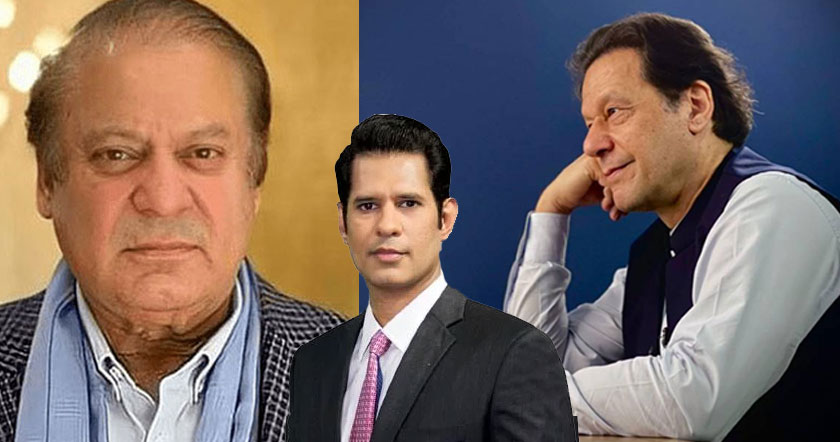By NICHOLAS D. KRISTOF
Published: May 14, 2011
When he was alive, Ambassador Richard Holbrooke was effectively gagged, unable to comment on what he saw as missteps of the Obama administration that he served. But as we face a crisis in Pakistan after the killing of Osama bin Laden, its worth listening to Holbrookes counsel from beyond the grave.
As one of Americas finest strategic thinkers and special envoy to the Af-Pak region, Holbrooke represented the administration but also chafed at aspects of the White House approach. In particular, he winced at the overreliance on military force, for it reminded him of Vietnam.
There are structural similarities between Afghanistan and Vietnam, he noted, in scattered reflections now in the hands of his widow, Kati Marton.
He thought that this could become Obamas Vietnam, Marton recalled. Some of the conversations in the Situation Room reminded him of conversations in the Johnson White House. When he raised that, Obama didnt want to hear it.
Because he was fiercely loyal to his friend Hillary Clinton, the secretary of state, Holbrooke bit his lip and kept quiet in public. But he died in December, and Marton and some of his friends (me included) believe its time to lift the cone of silence and share his private views. At this time, with Pakistan relations in a crisis and Afghanistan under review, our country could use a dose of his wisdom.
Holbrooke opposed the military surge in Afghanistan and would see the demise of Bin Laden as an opportunity to go into diplomatic overdrive. He believed strongly that the only way out of the mess in Afghanistan was a peace deal with the Taliban, and his team was secretly engaged in outreach to figures linked to the Taliban, Marton says.
Reconciliation that was what he was working toward in Afghanistan, and building up the civilian and political side that had been swamped by the military, Marton recalled. The whole policy was off-kilter, way too militarized. Richard never thought that this war could be won on the battlefield.
His aim, she says, was something like the Balkan peace agreement he negotiated at a military base in Dayton, Ohio. The process would be led by the United States but include all the regional players, including Pakistan and Iran.
He was dreaming of a Dayton-like setting somewhere, isolated, no media, no Washington bureaucracy, Marton said. He was a long way from that, but he was dreaming of that.
Vali Nasr, a member of Holbrookes team at the State Department, puts it this way: He understood from his experience that every conflict has to end at the negotiating table.
Nasr says that Holbrookes aim for Afghanistan was not cut-and-run, but a viable, lasting solution to end the civil war there. If Holbrooke were still alive, Nasr says, he would be shuttling frantically between Islamabad and Kabul, trying to take advantage of Bin Ladens killing to lay the groundwork for a peace process.
To do that, though, we have to put diplomacy and development and not 100,000 troops, costing $10 billion a month at the heart of our Afghan policy. Holbrooke was bemused that he would arrive at a meeting in a taxi, while Gen. David Petraeus would arrive escorted by what seemed a battalion of aides. And Holbrooke would flinch when Petraeus would warmly refer to him as his wingman meaning it as a huge compliment rather than seeing military force as the adjunct to diplomacy.
As for Pakistan, Holbrooke told me and others that because of its size and nuclear weaponry, it was center stage; Afghanistan was a sideshow.
A stable Afghanistan is not essential; a stable Pakistan is essential, he noted, in the musings he left behind. He believed that a crucial step to reducing radicalism in Pakistan was to ease the Kashmir dispute with India, and he favored more pressure on India to achieve that.
Holbrooke was frustrated by Islamabads duplicity. But he also realized that Pakistan sheltered the Afghan Taliban because it distrusted the United States, particularly after the United States walked away in 1989 after the Soviet pullout from Afghanistan. And renewed threats of abandonment wont build trust.
Rather, Holbrooke poured his soul into building a relationship not only with Pakistani generals but also with the Pakistani people, and there were modest dividends. He helped improve C.I.A. access to Pakistan, which may have helped with the raid on the Bin Laden compound. And he soothed opposition to drone attacks, Nasr noted.
He was treating them as a serious player, not as if youre just having a one-night stand but as if there might actually be marriage at the end of the relationship, Marton said.
Its a vision of painstaking diplomacy toward a strategic goal peace and its what we need more of. President Obama said wonderful things at the memorial service for Holbrooke. But the best tribute would be to listen to his advice.
http://www.nytimes.com/2011/05/15/opinion/15kristof.html?_r=2&ref=opinion
Published: May 14, 2011
When he was alive, Ambassador Richard Holbrooke was effectively gagged, unable to comment on what he saw as missteps of the Obama administration that he served. But as we face a crisis in Pakistan after the killing of Osama bin Laden, its worth listening to Holbrookes counsel from beyond the grave.
As one of Americas finest strategic thinkers and special envoy to the Af-Pak region, Holbrooke represented the administration but also chafed at aspects of the White House approach. In particular, he winced at the overreliance on military force, for it reminded him of Vietnam.
There are structural similarities between Afghanistan and Vietnam, he noted, in scattered reflections now in the hands of his widow, Kati Marton.
He thought that this could become Obamas Vietnam, Marton recalled. Some of the conversations in the Situation Room reminded him of conversations in the Johnson White House. When he raised that, Obama didnt want to hear it.
Because he was fiercely loyal to his friend Hillary Clinton, the secretary of state, Holbrooke bit his lip and kept quiet in public. But he died in December, and Marton and some of his friends (me included) believe its time to lift the cone of silence and share his private views. At this time, with Pakistan relations in a crisis and Afghanistan under review, our country could use a dose of his wisdom.
Holbrooke opposed the military surge in Afghanistan and would see the demise of Bin Laden as an opportunity to go into diplomatic overdrive. He believed strongly that the only way out of the mess in Afghanistan was a peace deal with the Taliban, and his team was secretly engaged in outreach to figures linked to the Taliban, Marton says.
Reconciliation that was what he was working toward in Afghanistan, and building up the civilian and political side that had been swamped by the military, Marton recalled. The whole policy was off-kilter, way too militarized. Richard never thought that this war could be won on the battlefield.
His aim, she says, was something like the Balkan peace agreement he negotiated at a military base in Dayton, Ohio. The process would be led by the United States but include all the regional players, including Pakistan and Iran.
He was dreaming of a Dayton-like setting somewhere, isolated, no media, no Washington bureaucracy, Marton said. He was a long way from that, but he was dreaming of that.
Vali Nasr, a member of Holbrookes team at the State Department, puts it this way: He understood from his experience that every conflict has to end at the negotiating table.
Nasr says that Holbrookes aim for Afghanistan was not cut-and-run, but a viable, lasting solution to end the civil war there. If Holbrooke were still alive, Nasr says, he would be shuttling frantically between Islamabad and Kabul, trying to take advantage of Bin Ladens killing to lay the groundwork for a peace process.
To do that, though, we have to put diplomacy and development and not 100,000 troops, costing $10 billion a month at the heart of our Afghan policy. Holbrooke was bemused that he would arrive at a meeting in a taxi, while Gen. David Petraeus would arrive escorted by what seemed a battalion of aides. And Holbrooke would flinch when Petraeus would warmly refer to him as his wingman meaning it as a huge compliment rather than seeing military force as the adjunct to diplomacy.
As for Pakistan, Holbrooke told me and others that because of its size and nuclear weaponry, it was center stage; Afghanistan was a sideshow.
A stable Afghanistan is not essential; a stable Pakistan is essential, he noted, in the musings he left behind. He believed that a crucial step to reducing radicalism in Pakistan was to ease the Kashmir dispute with India, and he favored more pressure on India to achieve that.
Holbrooke was frustrated by Islamabads duplicity. But he also realized that Pakistan sheltered the Afghan Taliban because it distrusted the United States, particularly after the United States walked away in 1989 after the Soviet pullout from Afghanistan. And renewed threats of abandonment wont build trust.
Rather, Holbrooke poured his soul into building a relationship not only with Pakistani generals but also with the Pakistani people, and there were modest dividends. He helped improve C.I.A. access to Pakistan, which may have helped with the raid on the Bin Laden compound. And he soothed opposition to drone attacks, Nasr noted.
He was treating them as a serious player, not as if youre just having a one-night stand but as if there might actually be marriage at the end of the relationship, Marton said.
Its a vision of painstaking diplomacy toward a strategic goal peace and its what we need more of. President Obama said wonderful things at the memorial service for Holbrooke. But the best tribute would be to listen to his advice.
http://www.nytimes.com/2011/05/15/opinion/15kristof.html?_r=2&ref=opinion


